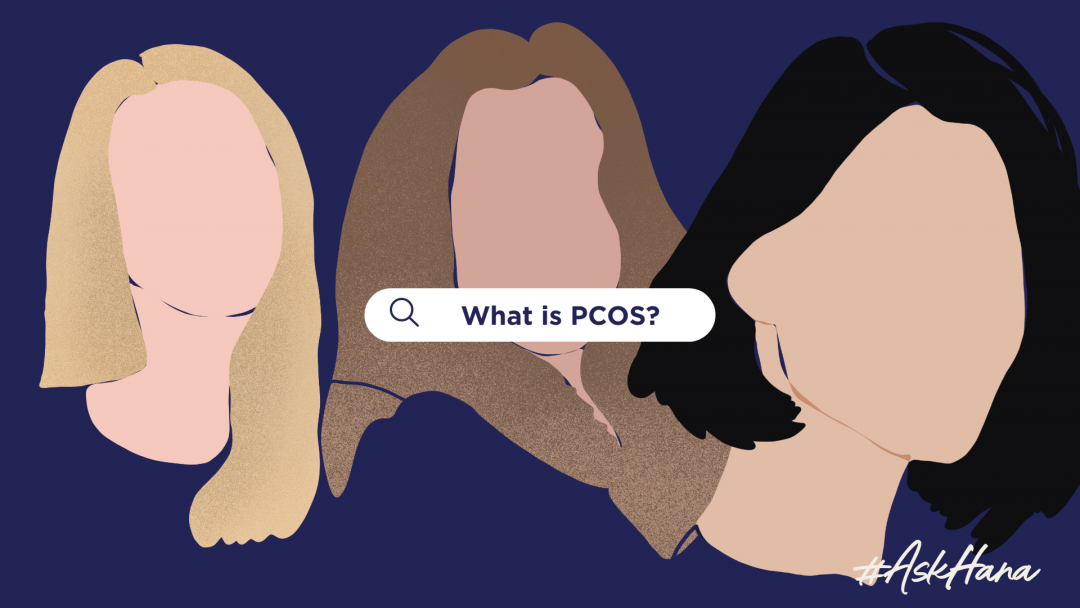Symptoms of PCOS
Around 1 in 10 women are affected by a condition called polycystic ovary syndrome (PCOS). Whilst PCOS is fairly common, it can be very difficult to live with and many people suffer for the entirety of their childbearing years.
PCOS is caused by an imbalance of hormones. People with PCOS experience higher-than-usual levels of the ‘male’ hormone androgen, which affects the ovaries. In those with PCOS, fluid filled sacs grow inside the ovaries, so the egg might not develop or be released properly. This is the reason for the altered hormone levels.
Treatments for PCOS
The cause of PCOS is still relatively unknown. Studies have shown that PCOS can be genetic, or it can be down to naturally high levels of androgens or insulin. High levels of insulin, or insulin resistance, can be the cause of PCOS because it can impair ovulation and cause the ovaries to produce excess testosterone.
Who does PCOS affect?
PCOS can affect women and people with uteruses – basically anyone with the ability to get pregnant – during the time that they can conceive, i.e. the time between their first period and menopause.
PCOS can have a physical effect on the body, and often has a negative impact on the patient’s mental health too. We spoke to Jane (she/her), who is 28, lives in Manchester and was diagnosed with PCOS when she was 24.
“When I was first diagnosed, it was a bit of a relief,” says Jane. “I finally had an answer to the months of painful, irregular periods and massive weight gain. But then I started to really suffer with some of the symptoms like acne and excess hair growth and found my self esteem plummeting. It’s a weird one, really – the GP initially told me I needed to have kids sooner rather than later, but I was 24 and absolutely not ready for that, so there was quite a bit of emotional turmoil there.”
What are the side effects of PCOS?
The side effects and symptoms of PCOS will vary from person to person – some might experience none or only one of these symptoms, and others might suffer with more. Some women and people with uteruses might experience one or more of these side effects mildly, and some more extremely. It’s always important to remember that everyone is unique, and will experience things differently.
Common symptoms of PCOS include irregular periods or loss of periods, difficulty getting pregnant, hair growth (hirsutism) – usually on the face, chest or back – weight gain or a change in weight, hair loss from head, skin problems or acne.
PCOS can potentially have an effect on your overall health, too, and can be linked to conditions such as type 2 diabetes (due to insulin resistance), depression, high blood pressure and cholesterol.
Can PCOS affect fertility?
In short, yes. PCOS can have an effect on your fertility. PCOS is actually one of the most common causes of infertility in women. But that’s not necessarily a reason to panic! Lots of women who do suffer with PCOS are able to conceive with various treatment options. If you have PCOS and get pregnant, you might be at a higher risk of being diagnosed with conditions like high blood pressure, preeclampsia (another high-blood pressure condition) or gestational diabetes, but this will be monitored by your doctor.
Can PCOS be cured?
Although it can’t be cured, there are quite a few treatment options when it comes to PCOS, depending on which symptoms you are looking to treat. If you are looking for help with fertility, you might be offered a medication called clomifene, which helps stimulate ovulation. Metformin (a commonly-used diabetes drug) can also be prescribed to help with insulin and blood sugar levels and encourage monthly periods. Various forms of hormonal contraception are often favoured to help with symptoms like acne and general hormonal imbalance, while there are an abundance of natural remedies and changes to diet and lifestyle that are said to have a positive effect on PCOS symptoms.
We asked Jane how she manages her symptoms: “I’ve had some laser treatment for the hair growth on my face, but it really needs to be more of a regular occurrence to work properly, and I don’t have the time or budget to accommodate that right now! Otherwise, I try and really look after my body, eating foods that nourish it and trying to avoid anything that might contribute to a spike in my insulin and doing gentle exercise as often as I can. There are loads of great support and information pages on Instagram that I’ve found really helpful, too!”
Although it cannot be cured, there are many ways of potentially easing some of the side effects of PCOS, and hopefully letting those who suffer with PCOS live a much happier, more normal life. Again, it’s important to note here that everybody is different, and what works for one person might not work for another.
If you have concerns about your PCOS symptoms, are worried about whether or not you might have PCOS or are looking into treatment options, we recommend speaking to a medical professional.
References
https://www.ncbi.nlm.nih.gov/pmc/articles/PMC2776334/
https://www.nhs.uk/conditions/polycystic-ovary-syndrome-pcos/symptoms/


